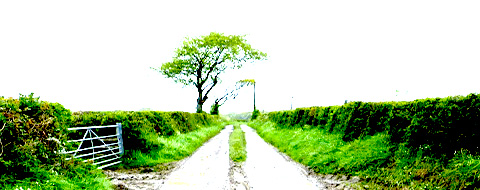Voices from the Great War
Mattijs van de Woerd, baritone / Shuann Chai, piano
"l'Horizon chimérique" (J. de la Ville de Mirmont)
Je me suis embarqué
Diane, Séléné
Vaisseaux, nous vous aurons aimés
Six Songs from "A Shropshire Lad" (A.E. Housman)
When I was one-and-twenty
Look not in my eyes
Think no more, lad
The lads in their hundreds
Is my team ploughing
The twa corbies (trad.)
Even such is Time (W. Raleigh)
Severn Meadows (I. Gurney)
"Banalités" (G. Apollinaire)
Hôtel
Fagnes de Wallonie
Voyage à Paris
Sanglots
"Walking into Clarity" (I. Gurney)

The outbreak of the First World War, now one hundred years ago, is a great hinge in history. The 'birth of total warfare' was also the irrevocable end of human innocence: the Great War would reveal to the world the hitherto unimaginable scale of mass destruction mankind was now capable of.
Among the many lives destroyed by the events of 1914-1918 were those of gifted men, poets and composers. Their works as well as their lives were inevitably shaped by those grotesque times. Some sought to escape from the realities of life in a world at war, others tried to capture those very same realities in words or music to try and discern any meaning or beauty in the omnipresent, unprecedented devastation.
Our recital programme pays tribute to four talented men crushed by the Great War. Their words and music, be it uplifting or foreboding, sweet or grim, are the residue of marred lives. Their poems and songs offer us a glimpse of human perspective on an utterly inconceivable, outsized tragedy.
Jean de la Ville de Mirmont died at the front, age 27; Gabriel Fauré's composed his four last songs to his youthful poetry. George Butterworth was killed at the Somme, age 31; his musical setting of six of A.E. Housman’s famous 'Shropshire Lad' poems (which romanticize the idea of dying young so touchingly) is a milestone in the English song repertoire. Guillaume Apollinaire suffered a shrapnel wound to the head in 1916 from which he never really recovered, dying only two years later; his writing, defined by his often humorous, Dadaist take on life – including the tragedies of World War I – inspired Francis Poulenc to some of his most memorable mélodies. English composer-poet Ivor Gurney was gassed in the trenches – he survived, but his mental health was destroyed. He spent the last 15 years of his life confined in a mental hospital, gradually losing his mind. As well as songs by Gurney himself this concert programme features a grand 'musical fantasy' by Dutch contemporary composer René Samson, based upon Gurney’s poems and letters from his last years.
© 2013 Mattijs van de Woerd